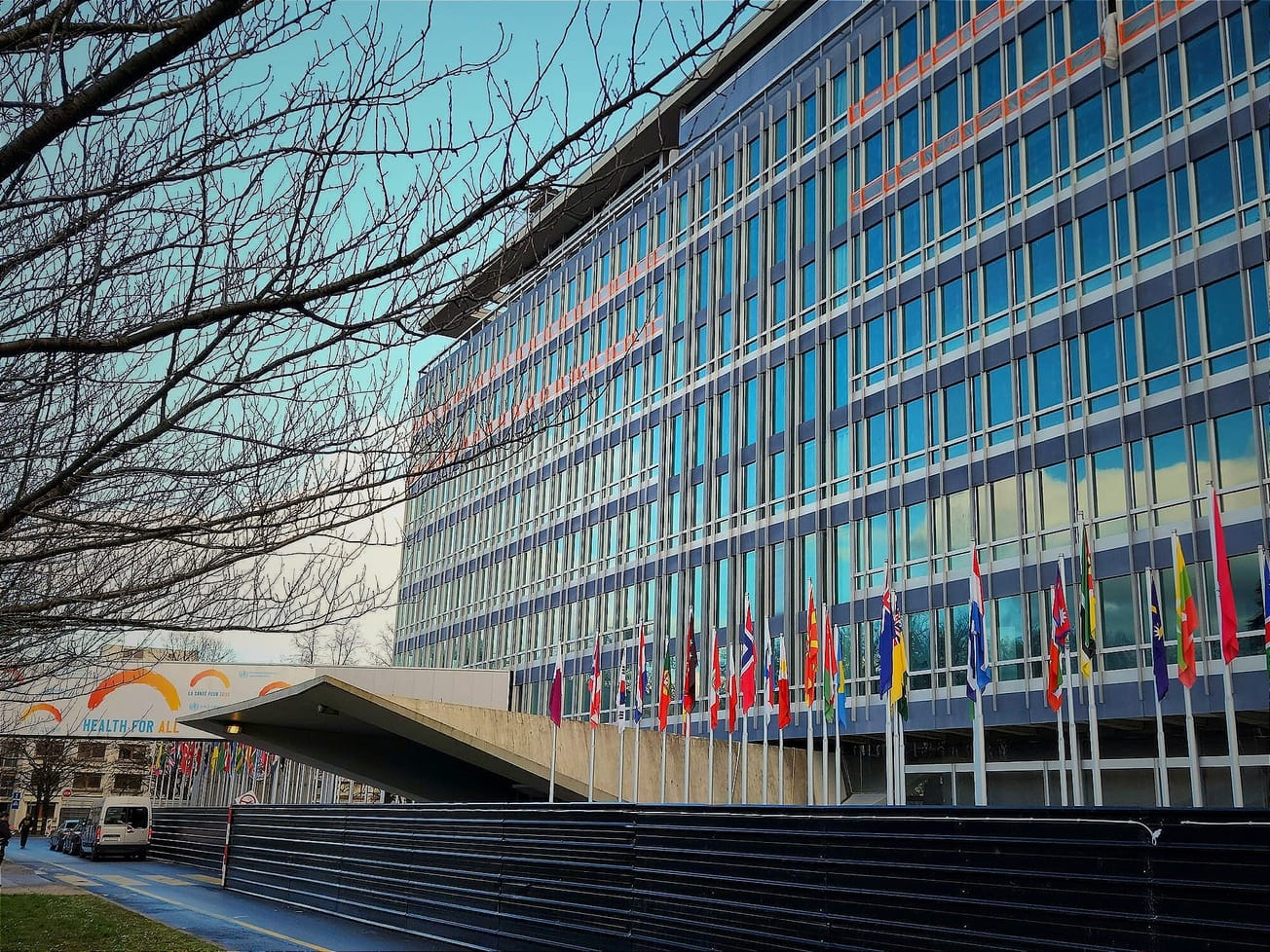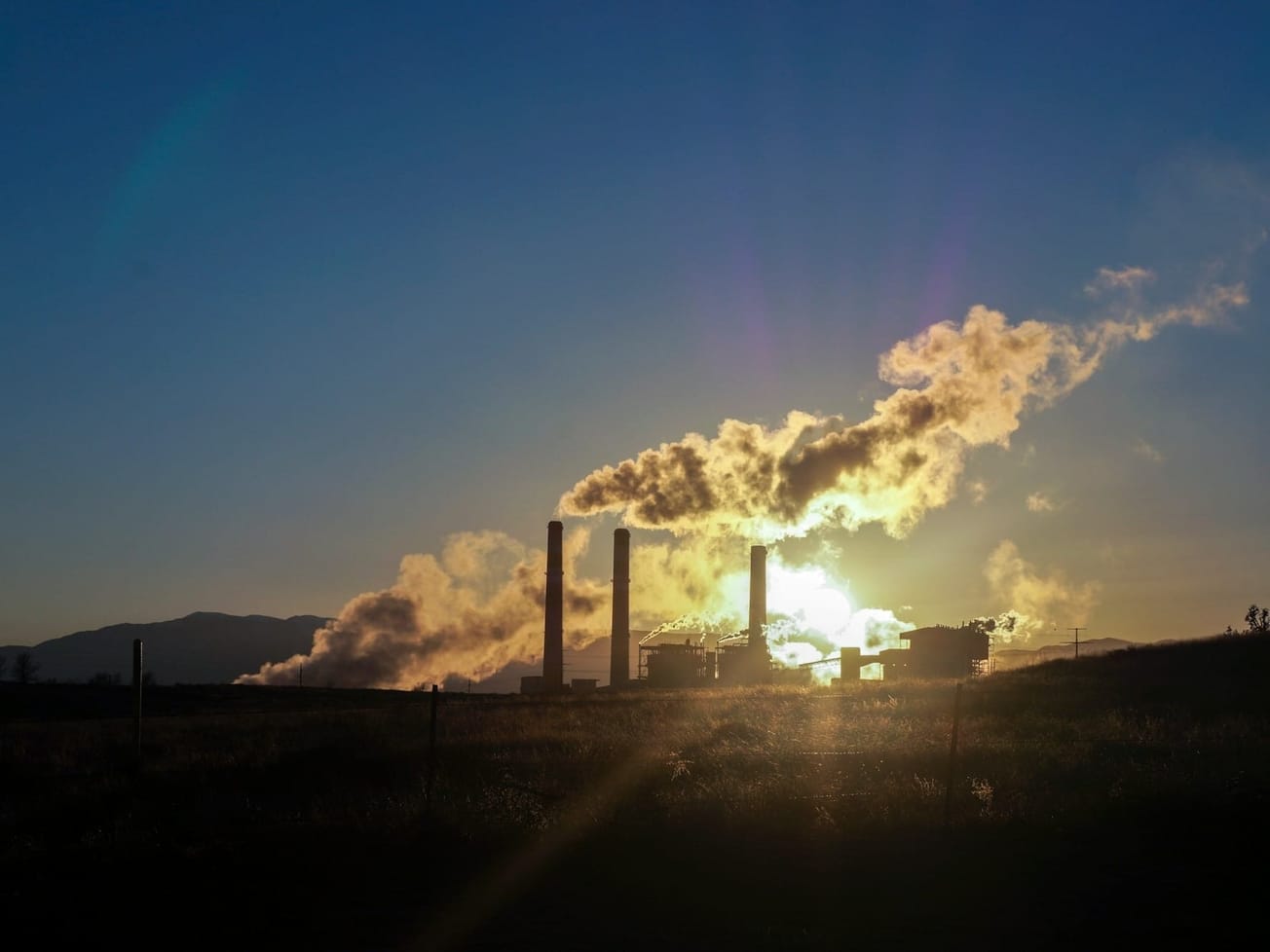Major multilateral turnarounds for the United States — rejoining the World Health Organization and 2015 Paris Agreement — were among a burst of immediate directives issued by U.S. President Joe Biden and Vice President Kamala Harris after taking office on Wednesday.
Biden signed more than a dozen executive orders, memorandums and proclamations from the Oval Office, notably including moves to rejoin the U.N. health agency and the Paris climate treaty from which his predecessor, former President Donald Trump, withdrew the United States. Importantly, Biden sent signals that he intends to restore the damage from the Trump administration's hostility to multilateralism.
"So here is my message to those beyond our borders: America has been tested and we have come out stronger for it. We will repair our alliances and engage with the world once again," the 46th U.S. president said. "Not to meet yesterday’s challenges, but today’s and tomorrow’s. We will lead not merely by the example of our power but by the power of our example. We will be a strong and trusted partner for peace, progress, and security."
The incoming Biden-Harris administration wasted no time launching a rapid series of policy reversals starting with renewed multilateral efforts to combat the coronavirus pandemic and global warming. "A cry for survival comes from the planet itself," Biden said in his inauguration speech. "A cry that can’t be any more desperate or any more clear."
Biden fulfilled his campaign promise that on his first day in office he would reverse Trump's decision to withdraw from the World Health Organization and restore U.S. ties with the COVAX Facility, which is co-led by WHO; Gavi, the Vaccine Alliance; and the Coalition for Epidemic Preparedness Innovations. It is working to accelerate COVID-19 vaccines and to guarantee that all nations have fair and equitable access.
To that end, he sent a message to United Nations Secretary-General António Guterres that the United States intends to remain a member of the U.N. health agency, which was founded with and has long relied upon strong U.S. support. "The WHO plays a crucial role in the world’s fight against the deadly COVID-19 pandemic as well as countless other threats to global health and health security," Biden said. "The United States will continue to be a full participant and a global leader in confronting such threats and advancing global health and health security."
He also released a brief statement announcing that as president, he accepted the Paris climate accord "and every article and clause thereof" on behalf of the United States with the aim of lessening or avoiding the worst impacts of global warming this century. The United States formally departed in November, a result of the Trump administration’s formal withdrawal notice to the United Nations exactly one year earlier.
French President Emmanuel Macron welcomed the U.S. recommitment to climate change and global cooperation. "Best wishes on this most significant day for the American people! We are together. We will be stronger to face the challenges of our time," he wrote on Twitter. "Stronger to build our future. Stronger to protect our planet. Welcome back to the Paris Agreement!"
None of the almost 200 nations that signed onto the deal, which took effect on November 4, 2016, were able to leave it for the first three years. The United States became the first and only nation to withdraw under a process that takes a year to complete. Rejoining the treaty does not require approval by the U.S. Congress, and readmission will take effect just 30 days from now.
"This is our historic moment of crisis and challenge," Biden said. "And unity is the path forward."
2nd on the list of executive actions very-soon-to-be President Biden will undertake today is this: Re-engaging with @WHO.
— Helen Branswell 🇺🇦 (@HelenBranswell) January 20, 2021
A US withdrawal from WHO would have done tremendous damage to a critical agency. US interests are better served inside WHO than outside it. pic.twitter.com/br2fztKsB0
🇺🇸
— Alexander Verbeek 🌍 (@Alex_Verbeek) January 20, 2021
Happy to know that this world map will soon look so much greener. 😊
Today, Biden will rejoin the Paris Agreement, signing an instrument that will be deposited with the U.N.
The U.S. will officially become party to the agreement in 30 days.#climatechange #Inauguration pic.twitter.com/Gr7DQAblyh
'Much to repair'
The new Biden-Harris administration also moved to overhaul domestic climate and environmental policies by focusing on clean energy technologies, high fuel standards for cars and SUVs, and more incentives for renewable power. It said it will also prioritize efforts to eliminate systemic racial and social injustices.
More than 11,000 scientists issued a dire warning in 2019 that the world must take immediate action to alter course if it is going to avert “untold suffering due to the climate crisis.” The 132-nation IPBES organization reported last year that human actions are causing Earth’s natural life support systems to reach a breaking point, threatening 1 million plant and animal species with extinction in a challenge as colossal as the climate crisis.
"This is a time of testing. We face an attack on democracy and on truth. A raging virus. Growing inequity. The sting of systemic racism. A climate in crisis. America’s role in the world," Biden said. "Any one of these would be enough to challenge us in profound ways. But the fact is we face them all at once, presenting this nation with the gravest of responsibilities. Now we must step up. All of us."
Biden acknowledged, as he put it, that there is "much to repair" in the world, including the global health and economic wreckage from a coronavirus pandemic that has infected 96 million people and killed 2 million worldwide. But he said "democracy has prevailed" after a bitter presidential election, and he urged Americans to unite in taking on the systemic racism and police brutality at the root of nationwide protests over U.S. shootings and other violent attacks.
"A once-in-a-century virus silently stalks the country. It’s taken as many lives in one year as America lost in all of World War II," Biden said of the 403,000 Americans who have died from COVID-19. "Millions of jobs have been lost. Hundreds of thousands of businesses closed. A cry for racial justice some 400 years in the making moves us. The dream of justice for all will be deferred no longer."
The new U.S. president appealed to all Americans to end their "uncivil war" over politics and Trumpism and to work towards restoring civility, fighting misinformation and instilling confidence in science and fact-based policies. The inauguration was held less than two weeks after pro-Trump insurrectionists violently stormed the U.S. Capitol and delayed Congress from certifying Biden’s November 3 election victory, which he won by 7 million votes.
"Politics need not be a raging fire destroying everything in its path. Every disagreement doesn’t have to be a cause for total war," he said. "And we must reject a culture in which facts themselves are manipulated and even manufactured."
Tonight, in Washington, D.C. and across the nation, we came together to honor the over 400,000 Americans we’ve lost to COVID-19. The last year has tested us in unimaginable ways, but now it’s time we begin to heal and overcome — together. pic.twitter.com/DuWhN1xjNO
— Joe Biden (@JoeBiden) January 20, 2021








